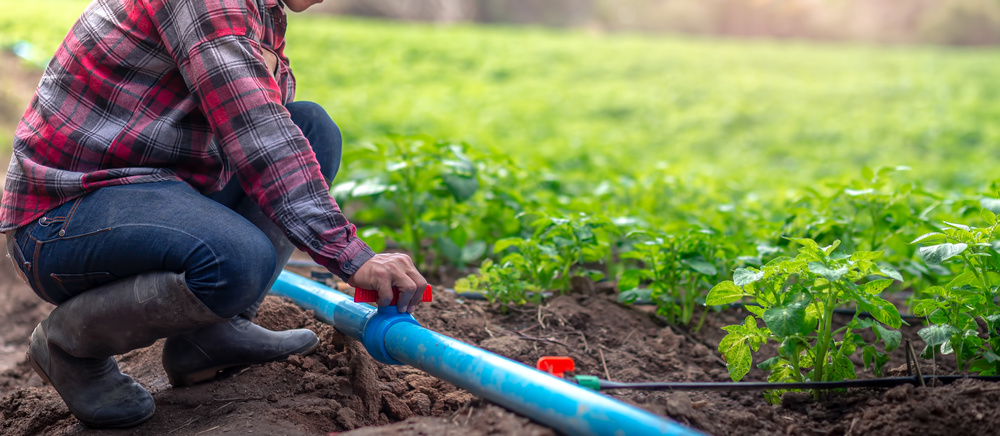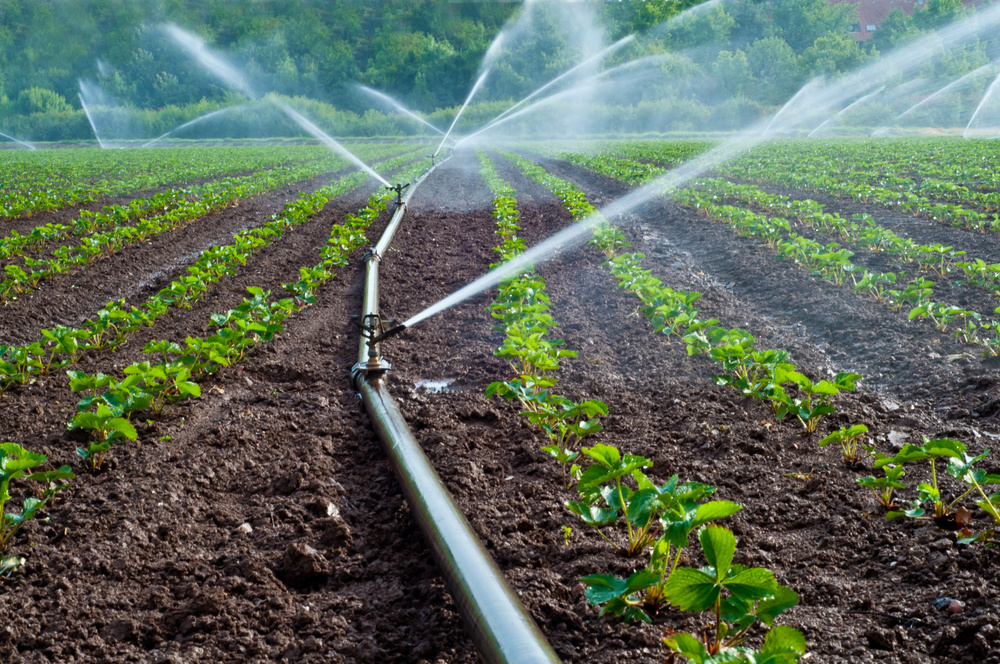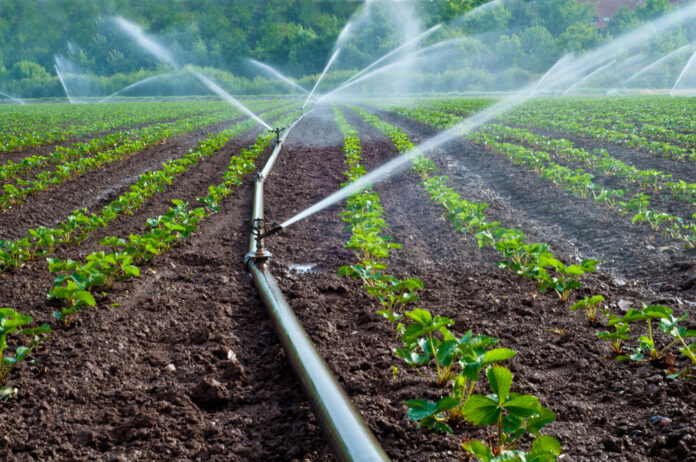Farming is a beautiful and rewarding activity. It allows you to enjoy fresh and healthy produce, such as fruits, vegetables, grains, and livestock. But it can be a significant challenge if you don’t have the proper agricultural equipment or adequate water supply for your plants. If you want an easy way to maintain a healthy garden or farm that consistently produces high-quality yields with minimal effort on your part, consider investing in an agricultural irrigation system.
What Is An Agricultural Irrigation System And Its Benefits?
Agricultural irrigation is the process of supplying water to crops or plants in agricultural areas. The most common irrigation method uses pipes, canals, and pumps to transport water from a source, such as a river or a lake, to the agricultural fields.
There are two main agricultural irrigation systems types: sprinkler and drip systems. Sprinkler systems evenly distribute water over the field through pipes and sprinklers. Drip systems deliver small amounts of water directly to the roots of plants through emitters or drip lines. The Fruit Growers Agricultural Irrigation System is an example of a drip system. It supplies water to crops through a network of underground pipes. The system is designed to minimize evaporation and ensure that the roots of plants receive a consistent supply of moisture.

If you’re wondering how an agricultural irrigation system helps, here are some of the top benefits:
- Improves Water Efficiency
When rain isn’t forthcoming, and the ground is dry, irrigation can help provide the water your plants need to stay healthy. Agricultural irrigation systems help improve water efficiency on your farm by delivering the precise amount of water needed for your crops and nothing more. This means less water is wasted through evaporation or runoff, and your plants can make the most of the moisture they receive.
In addition, an irrigation system can be programmed to water your plants at night or in the morning when evaporation rates are lower. As a result, using an agricultural irrigation system effectively improves water efficiency on your farm.
- Lowers The Cost Of Labor
When it comes to operating a successful farm, labor is one of the significant costs. You have to hire people, pay wages, and provide all kinds of benefits. When you use an irrigation system to water your crops, you save on labor costs. The sprinkler or drip system is automated and doesn’t require manual intervention for watering the crops. This means that you can assign someone else to work as a farm dispatcher who can look after the maintenance of the system and make timely repairs when required. Surprisingly, with the automatic irrigation system, there’ll be less manual labor. These systems are designed to save time, water, and labor.
- Boosts Productivity
When it comes to farm productivity, there are a lot of factors to consider. But if you’re looking for the most effective way to improve your yields, ensuring your plants have enough water is an excellent place to start. Without enough water, plants will wilt, droop, and eventually die. For farmers, ensuring that their crops get enough water is a constant challenge, especially during periods of drought. One way to solve this problem is to install an irrigation system. Irrigation systems help to deliver water directly to the roots of plants, where it can be used most effectively. In addition, irrigation systems can be programmed to water plants on a schedule, which helps to ensure that they get the right amount of water at a specific time.
- Maintains The Soil Quality
It goes without saying that your soil’s quality is a crucial factor in the health of your plants. If the soil is overly dry, it won’t support healthy plant growth. But if your soil is too wet, it can lead to a host of other problems, such as increased weed growth, which can lower crop yields.
Agricultural irrigation systems are designed to maintain optimal soil moisture, helping your plants thrive regardless of weather conditions. In addition, an irrigation system can help prevent soil erosion and runoff by incorporating water retention structures and layers into its design. As a result, when choosing the right system for your farm, do so bearing in mind that using an agricultural irrigation system is an ideal way to prepare your soil for planting.
- Promotes Overall Environmental Sustainability
As a farmer, you’re probably well aware of the importance of environmental sustainability within your farm and on a larger scale. As demand for food continues to grow, you must find ways to improve agricultural efficiency and limit impact on the natural world. An ideal way to achieve this is to use an irrigation system. These systems are designed to reduce water loss through evaporation, runoff, or over-watering. This can have a positive impact on local ecosystems and help conserve resources for future generations.
- Saves Money
An agricultural irrigation system can also help farmers save money—something that’s always good for their bottom line. It helps reduce expenses for farmers in several ways. For example, by watering crops during dry periods, farmers can reduce the amount of water that they’d otherwise need to purchase.
In addition, irrigation systems can help reduce labor costs by automating the process of watering crops. Finally, irrigation systems can improve crop yields by providing consistent water access, leading to higher profit. As a result, agricultural irrigation systems provide several benefits that can help save money for farmers.
- Reduces Weeds And Plant Diseases
Utilizing an agricultural irrigation system can do wonders for crop health and yield. Not only does it provide consistent water and supplemental nutrition to plants, but it also actively helps reduce pesky weeds and unsightly plant diseases. This is because uniform watering cycles help reduce the water stress that many weeds require to thrive, putting a dent in their populations.
Additionally, opting for a specialized irrigation system keeps weeds from spreading via windblown seeds or overlooked root sprouts, which easily occurs with traditional methods such as hand-watering.
Plant diseases, whether caused by viruses, bacteria, or fungi, can also be minimized with an agricultural irrigation system. By keeping foliage dry and warm (depending on the season) between watering cycles, these pathogens have fewer chances of replicating, reducing their potential impacts on available crops.

Conclusion
The idea of installing an agricultural irrigation system may seem like an extra cost at first, but the benefits it offers far outweigh this initial investment. By ensuring that your crops have enough water to thrive, protecting your soil quality, and reducing your environmental impact, you can boost crop yields. Whether you’re a large- or small-scale farmer, an agricultural irrigation system is worth considering.












